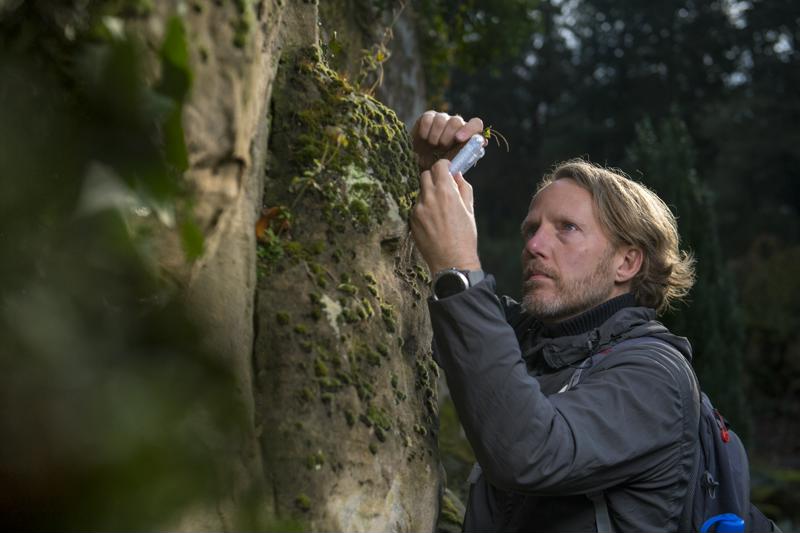
November 17, 2021, by Lexi Earl
Swift: A ten minute coffee with Prof Levi Yant
Levi Yant has recently been promoted to Professor in the School of Life Sciences. He is a Future Food Beacon group leader. Before this he was a Project Leader at the John Innes Centre (Norwich, UK). His independent research career began in 2014 as a Project Leader at Harvard University (USA), where he had previously been a postdoctoral researcher studying the evolution of developmental mechanisms in rapidly radiating species.
To celebrate his promotion, we spoke to Levi about his work.
Tell us about your research in 10 words or less.
I use genomics to understand how plants evolve and diversify
What does that mean to ordinary people?
We work to understand how evolution finds solutions to environmental and intracellular challenges. This means gaining a precise understanding of the sources of novel genome variation in diverse species.
We do this by applying genomics to wild populations that evolved in response to definable, quantifiable challenges. Recent advances in genomics and computer science allow us to clearly identify mutations underlying particular adaptations, making this an exciting time to apply genomics to previously unstudied species.
What do you enjoy most about your work?
Writing up new results to share with the world. It really is like a kind of dazzling midwifery, seeing the nascent gem in the data, testing it, and realising the impact of some new result. Then writing it up, telling the story of motivation and discovery to be shared with the world at no cost to anyone who is curious to know.
What are the challenges?
I’m naturally very curious and I do find focus to be a challenge. On the gradient of hedgehog (who knows one great thing, with focus) to fox (who knows many things and noses about constantly) I’m off the scale in the fox direction. This has worked out, but it’s not without considerable efforts at self-discipline that I maintain a coherent research programme!
How have the challenges impacted on your approaches to your research questions?
Happily, the diversity of questions I’ve been drawn to are actually, in the bigger picture, very coherent. In particular my initially rather independent interests in genome evolution, adaptation to polyploidy, and local adaptation, all have recently dovetailed into a more systematic, dedicated framework of investigating how it is that polyploid genomes evolve to adapt to local conditions.
Is there anything that you’ve found surprising in your work? Something you weren’t expecting perhaps?
Sure, but there’s too much to list here! Honestly, I’m quite happy engaging in rather ‘hypothesis-free’ large scale genomics, but with, I hope, a ‘prepared mind.’ This means I work to assemble substantial datasets that can be used to test one hypothesis or another, nearly as a fallback, but then poke the data and throw every approach at it and see what sticks. Modern population genomic datasets are too rich – especially in polyploids – to waste on single hypotheses, so engaging in many questions in one study is best, which then always yields surprises.
What kind of impact has your research had/do you hope it will have?
I’ve been happy to work in a field where we can commonly test theoretical predictions – some a century old – for the first time with robust genomic datasets, and sometimes even propose our own rather novel theories to test. That all of this work addresses fundamental ‘rules of life’, how evolution works very broadly, and is hugely rewarding for me to be involved in, is the kind of impact I can hope for.
Do you work in collaboration with others? Who do you work with, and how does this impact the research?
My research group works *only* in collaboration with others, and every study – bar none – is an international collaboration. I have a really extensive network of worldwide collaborations, including many in Europe, but also increasingly in Asia and Africa. Each partner lab brings complementary skills and outlooks that enriches every one of our studies. Strangely, I never set out to make the science this way, but without exception the studies lead (in fact, usually co-lead) by myself are international collaborations with substantial involvement from both (and sometimes many) sides.
Do you have any advice for future scholars?
Believe in yourself, and if you love the topic, give yourself away to it. And don’t be afraid of learning to code early. It is a true superpower.
Read more Take 10 with profiles.
No comments yet, fill out a comment to be the first

Leave a Reply